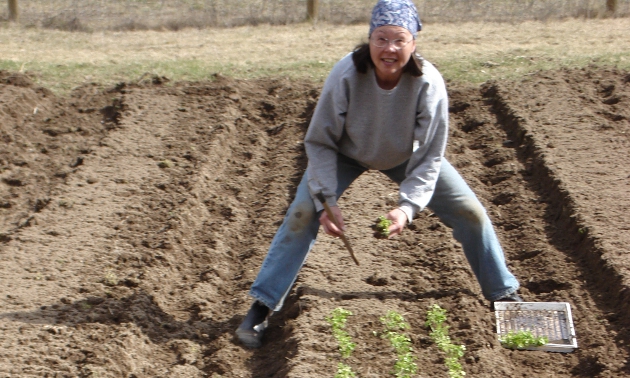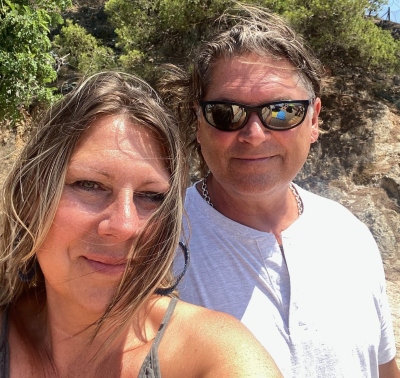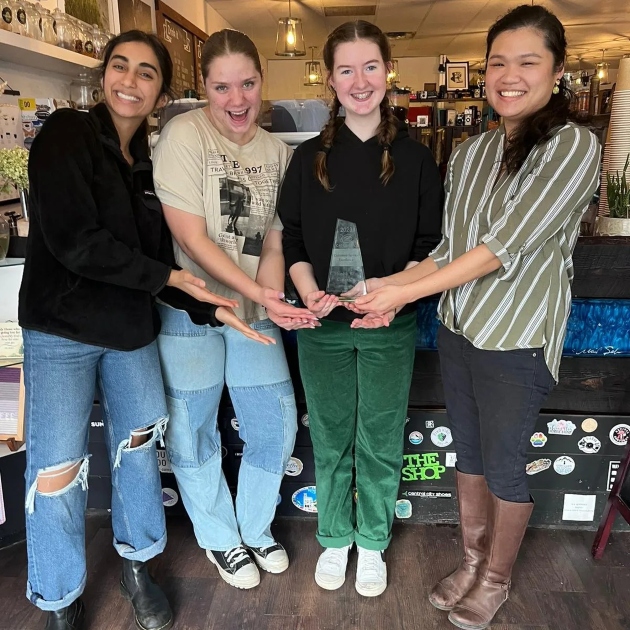Mad dogs and Englishmen—and a farm?
Mad Dog Farm is a producer of Kootenay Mountain Grown-certified produce

Nette Lack is happy at work in the garden at Mad Dog Farm in Castlegar. — Photo courtesy Mad Dog Farm
Nette Lack and her husband, Jeremy, have been around the Kootenays for 11 years or so, and the couple have got a lot going on. They are the owners of Mad Dog Farm, a 28-acre farm where—as they describe it—they grow vegetables from A to Z. They are passionate about potatoes (they have 42 varieties), bees, wildflowers and seeds—all of which they produce, raise and maintain.
Jeremy is the chairman of the Kootenay Local Agricultural Society (KLAS), while Nette is the administrator. They are staunch supporters of the organization and of Kootenay Mountain Grown (KMG), which is the marketing label for local produce and the organic certification arm of KLAS.
“They are part and parcel of each other,” said Nette, "and the KMG label is a service that KLAS provides."
Nette said that KMG is the only participatory guarantee system for organic production listed by the International Federation of Organic Agriculture Movements (IFOAM) in Canada.
Look for the label
The KMG label is allowed to be used by local farmers and those companies that buy or use local produce; they must be members of KLAS. The KMG label allows consumers to recognize that what they are purchasing is organic and local, thereby enhancing sales of local produce. It also provides a more affordable avenue for certification for farmers.
“It is an option to be certified for sale locally,” said Nette. “It is a way for everybody to know that someone is keeping an eye on things.”
To use the label, producing members must agree to follow the KMG principles and certification procedures by signing a pledge and an affidavit.
The Kootenay Mountain Grown label—formed by farmers, food activists and local food buyers—reinforces consumer preference for local products. Mad Dog Farm uses the KMG label; the farm's motto is: No pesticides, no herbicides, no whatevercides.
Diversification at the Dog
The Lacks moved out from the United Kingdom with animal husbandry plans that quickly switched to agricultural production. They now have a thriving business selling produce and natural bodycare products—and they offer courses in gardening and beekeeping. Nette said they are also planning to reintroduce livestock back onto their farm, so they will have come full circle. Best of all, she added, they have an open-farm policy.
“Everything we do is on our website,” said Nette. “We have a policy to be totally transparent and right up front. It is vitally important that members of the public know this and can see for themselves.
“The proof is in the pudding."





Comments